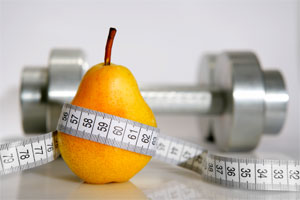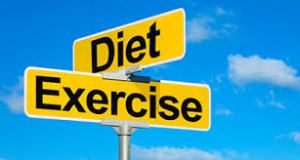Posts Tagged diet
Antioxidants, what are they?
Posted by Dr. Michelle Wolpov in Physical Therapy on October 24, 2014

Antioxidants, a word most people who have delved even slightly into fitness and nutrition has most likely heard or read about. Good nutrition includes whole; unprocessed foods. It is important to include a variety of foods, heart-healthy nutrients and antioxidants. Frequently, I hear the question, “What are antioxidants, are they an essential part of a healthy diet?”
The answer to this question is YES…antioxidants protect the body against the effects of free radicals. Antioxidants work with nutrients and enzymes in the body to neutralize negative effects of free radicals.
Now, what are free radicals? Free radicals are a group of atoms that cause damage to cells; impair the immune system and lead to infections and various degenerative diseases such as cancer and heart disease. Antioxidants are natural compounds that help protect the body from harmful free radicals. There are multiple free radicals in the body, they are formed by radiation, including exposure to sun rays, toxic chemicals. Examples are: those found in cigarette smoke, polluted air, industrial and household agents, and metabolic processes (such as the breaking down of fat for energy). So even healthy choices such as working out create free radicals!
Antioxidants are dietary substances (examples being: carotenoids, flavonoids and selenium) that can help prevent damage to your body cells or repair damage that is all ready there. They can improve immune function, and lower the risks of infection or cancer. Listed below are a few of the major antioxidants and how they benefit our bodies:

- Garlic – the sulfhydryl (sulfur and hydrogen) compounds found in garlic bind with toxic heavy metals to be excreted. Garlic prevents fats from being oxidized and deposited into tissues and arteries. Garlic also contains antioxidant nutrients such as Vitamin A & C and selenium.
- Flavonoids are potent antioxidants. Plants produce flavonoids to protect themselves from parasites, bacteria and cell injury. Flavonoids protect the antioxidant vitamins from oxidative damage. Flavonoids occur in fruits, vegetables, spices, seeds, nuts, flowers and bark. Wine (mostly red wine) apples, blueberries, biliberries, onions, soy products and teas.
- Vitamin C is a powerful antioxidant that recharges other antioxidants such as Vitamin E to keep them potent. Vitamin C is soluble in water and therefore cannot be stored by the body. Vitamin C protects the spinal cord and brain against free radical damage as well as damage to arteries and artery walls. Sources of Vitamin C include: citrus fruits (dark orange and red fruits), papaya, broccoli and Brussels sprouts.

- Carotenoids are fat-soluble pigments found in yellow, red, green and orange fruits and vegetables. These are a potent family of antioxidants that include alpha-carotene, beta carotene, lycopene, lutein, and zeaxanthin. There are more than 500 carotenoids found in nature, only about 50 of these can be converted into Vitamin A in the body. Food sources of carotenoids include: sweet potatoes, carrots, spinach, sweep peppers and kale.
- Ginkgo Biloba is an herb with powerful antioxidant effects in the brain, cardiovascular system and retina. Ginkgo Biloba has been found to have significant effects on patients with Dementia and Alzheimer’s disease as well as people recovering from strokes.
- Vitamin E is a powerful antioxidant that prevents oxidation of fats. Fat oxidation leads to atherosclerosis. Vitamin E improves oxygen utilization, enhances immune response and helps to prevent cataracts. Zinc and Selenium enhance absorption and usage of Vitamin E in the body. Sources of Vitamin E include: nuts, soybeans, sunflower seeds, dark green, leafy vegetables and sweet potatoes.

It is important to understand also, that more is not always better. If you are currently eating a well balanced, well rounded diet you are most likely getting the antioxidants you need from your food choices. Your body can not store extra antioxidants; so to take excessive amounts of them or any one product (or any combination) would not be beneficial. It is best to eat a balanced diet consisting of 5-8 servings of fresh fruits and vegetables daily.
I hope this was able to clear up some questions you may have had about antioxidants, or even educate you on the matter from scratch. Any questions? Are you getting enough antioxidants per day? Do you get any at all? Let me know! http://ow.ly/BiGAm
Diet or Exercise: Which Is Better for Losing Weight? Part 2
Posted by Dr. Michelle Wolpov in Physical Therapy on October 23, 2014

So here we are yet again, same question, other side of the equation. Good old exercise….we need it! It doesn’t matter if you’re at your goal weight or not. The human body is built to either move or fall apart. So let’s work toward keeping it together. The CDC recommends 150 minutes of moderate-intensity aerobic activity (brisk walking) or 75 minutes of vigorous-intensity (jogging or running) or an equivalent mix of the two every week (10-21 mins a day). Along with that, muscle-strengthening activities that work all major muscle groups should be done two or more days a week. What better way to achieve this than with a beachbody workout? They all give you this plus much more and can be done at any level of experience! Let’s check out a few of the major ways exercise can impact your day:
- You’ll feel less stressed and happier. Like diet, exercise can help reduce the amount of the stress hormones in your bloodstream and boost your energy levels so that you feel happier. Even low levels of exercise can help alleviate and may, in some cases, prevent depression. Along with this, those who work out regularly often experience high levels of self-esteem and an improved body image. Who doesn’t want that?
- You’ll sleep better. Sleep is the time when the body recovers, muscles heal, and performance-enhancing hormones are released. When you sleep, your body’s leptin levels recover, which is a hormone that tells us we’re full so you’re better able to say no when someone passes the chips. Exercise helps you sleep in numerous ways, the simplest one being that it breaks down tissue, this makes you tired because your body knows sleeping is the best time period to make repairs.

- Less likely to get sick. Exercise increases your lymph circulation in the long run and the result is improved immunity against getting sick. According to the National Institute of Health, exercising can help flush bacteria from lungs, purge the body of cancer-causing cells, and “trigger the release of hormones that ‘warn’ immune cells of intruding bacteria or viruses.”The long-term results are even more staggering, did you know exercise has been shown to boost your overall energy levels, improve bone density, lower cholesterol, and decrease the risk of heart disease, cancer, diabetes, and other diseases?
- Still need another reason? Well here it is, exercise will help you lose weight and tone up, who knew!? To really see results on the scale, you need to create a caloric deficit. This is basically eating fewer calories than you burn each day, resulting in a negative caloric intake at the end of the day which in turn will result in weight loss. Now that you have that down, add in some resistance training to really give yourself those toned sexy defined arms, back, legs, and of course, your abs.
So of all these things listed here, which do you find yourself doing daily and which is your favorite? Are there any here you’ve never even considered or done? You’ll be surprised at mine! Let me know here: http://ow.ly/z0zRx
Diet or Exercise: Which Is Better for Losing Weight? Pt.1
Posted by Dr. Michelle Wolpov in Physical Therapy on October 23, 2014
Spoiler Alert! The answer is both, done together!
If you only work out, you’ll have a tough time losing inches or pounds. Only diet and you might end up skinny-fat. But together, they have an effect that is symbiotic. Now let’s break it down so you can explain to your friends, significant other, coworkers, or that random curious bystander why you can’t skip your workout and why you’re passing on the cookies. And so you don’t talk yourself into thinking eating them is a good idea when your willpower is wavering.
First off the word “diet” makes me think about starving myself, like I’m cutting out a quantity of food, when really its all about a quality change. What I mean by “diet” is the way you eat. What you put in your body is your diet. A healthy diet consists of eating clean and staying hydrated. Whole grains, vegetables, fruits, nuts, seeds, lean proteins, and lots of water. And don’t forget the occasional treat; yes they are still allowed!
Let’s take a look at some reasons for having a healthier diet:
- You’ll be happier and more productive. Your diet has a bigger impact on how you feel than you may know. By eating the right foods—particularly complex carbs, iron-rich foods, and foods high in omega-3s—you can boost your energy levels so you feel happier and more equipped to handle what life throws at you.
- Your digestive system will run better. Fill your diet with fatty foods, not enough fiber, refined carbohydrates, and a lack of fruits and vegetables; and what you’re left with is slow digestion and constipation. On the other hand, drink plenty of water and consume a healthy diet, and you’ll be running like clockwork.
- You will achieve a healthy weight. Abs are cooked in the kitchen, we’ve all heard it before, and if you haven’t then now you have! You can’t out exercise a bad diet, and one meal can undo a good workout. I don’t tell you this to scare you; I say this to help you! Put down the cookies and the cake at the end of your day. You got a good workout in? Awesome! Now don’t go spending 2 minutes eating the calories you just spent an hour burning off!
Now lets all be honest with ourselves, cheat meals won’t kill you, but what was the last cheat meal or snack you ate and why!?
Let me know!


